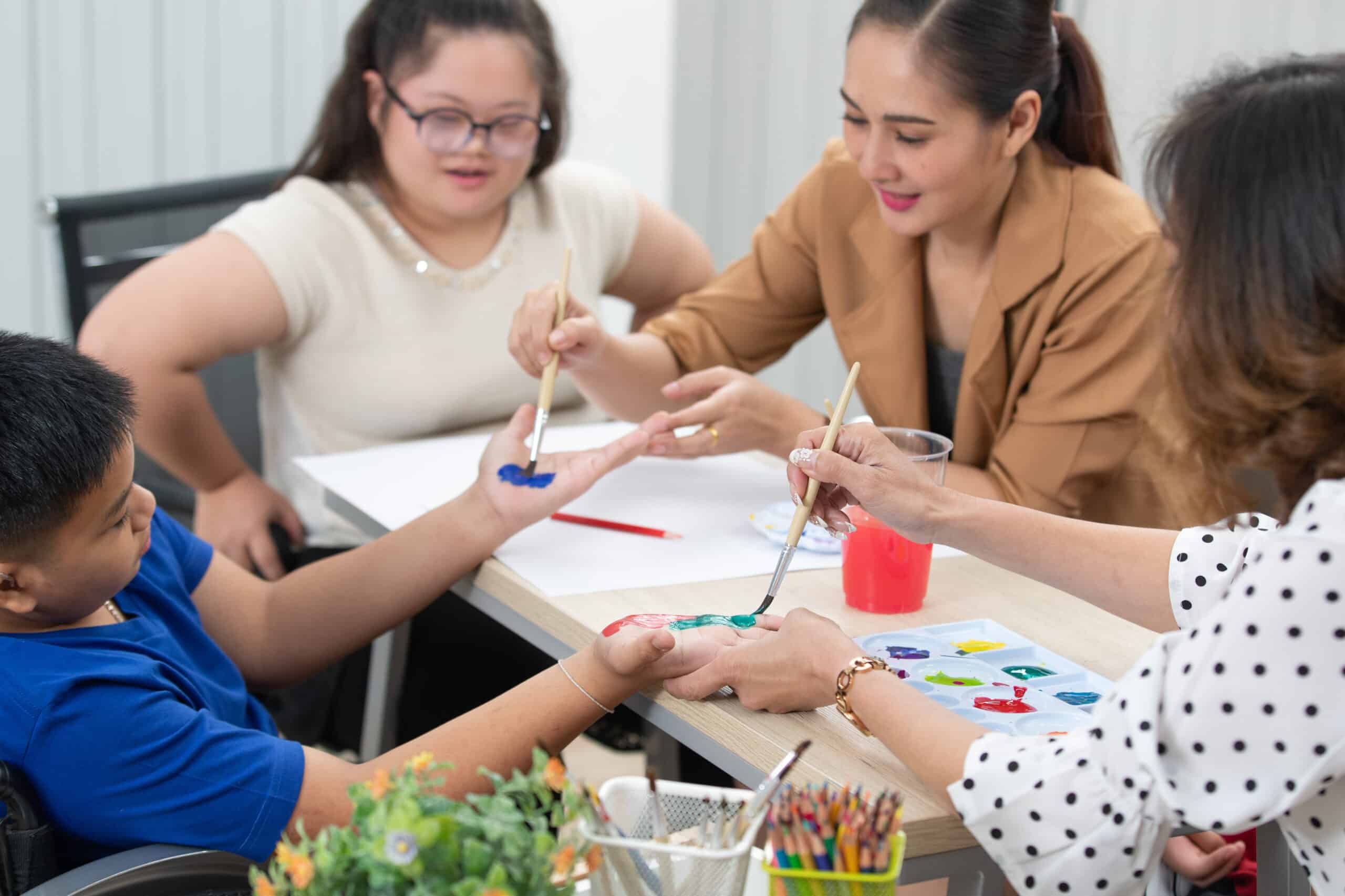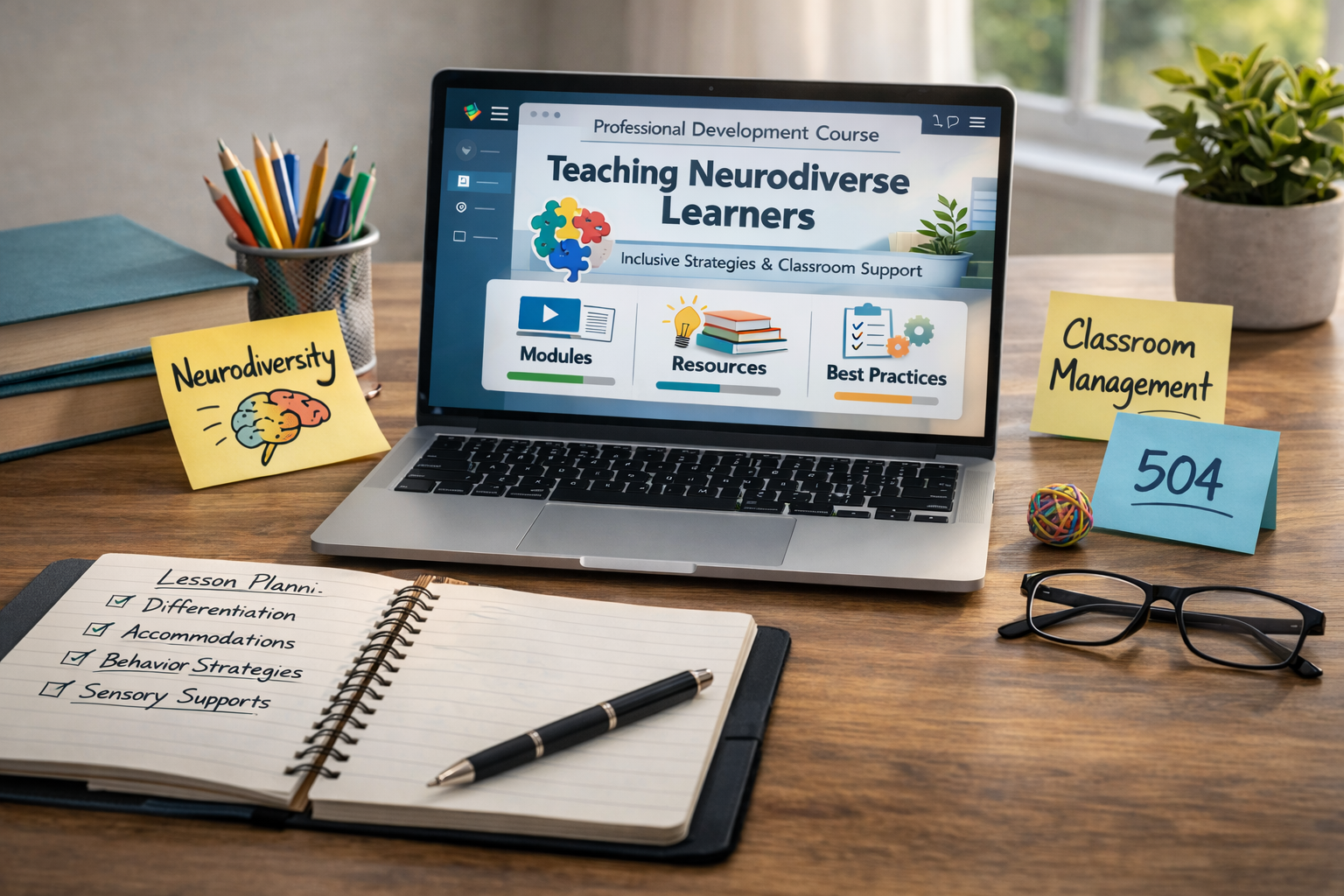IDEA and the IEP Process: A Guide for Educators

Creating more inclusive classrooms is an ongoing priority for education professionals that produces richer learning environments for all students in both private and public institutions. While many aspects of inclusion focus on best practices for students with diverse identities and socioeconomic backgrounds, young people with disabilities are a specially protected class.
The Individuals with Disabilities Education Act (IDEA) provides standards educators are required to follow to ensure students with disabilities can meaningfully participate in classroom activities. Online courses, like the Art of Writing Quality IEPs: Best Practices for Educators, help teachers apply IDEA and its provisions through the creation of Individualized Education Plans (IEPs), and standards are always evolving to reflect new data and hands-on experience.
To make IEPs both effective for students while meeting legal obligations, every educator needs to understand IDEA and the IEP process. By working closely with families and coworkers, they can create plans that are ideal for measuring academic achievement or functional performance, setting goals, and establishing appropriate accommodations.
What Is IDEA?
The Individuals with Disabilities Education Act (IDEA) has been federal law since 1990. The overarching goal of the legislation is to protect children with disabilities and ensure they have access to fair and appropriate education independent of where they live or where they go to school. Within IDEA, several important provisions are guided by key concepts, putting the student and their parents at the center of the conversation.
Free Appropriate Public Education (FAPE)
The right to a Free Appropriate Public Education (FAPE) is a legal provision contained in IDEA that guarantees all students with disabilities are provided public education that is tailored to their unique needs at no cost to their families. FAPE rights are also identified as civil rights within the Rehabilitation Act of 1973, so it is especially important that education professionals on all levels are trained to incorporate these principles into their classroom strategies.
Individualized Education Plan
The foundational directive of IDEA is the right to an Individualized Education Plan (IEP). The IEP serves as a written document developed by a trained team of education professionals that establishes evaluation standards and specific accommodations required to support a student with a disability.
Appropriate Evaluation
Aligning with IDEA and the IEP process requires schools to conduct an appropriate evaluation of any student suspected of having a disability. These evaluations must be conducted by professionals who are knowledgeable and trained in assessing children across a wide spectrum of learning issues.
Least Restrictive Environment (LRE)
“Least restrictive environment” is a legal term pertaining to inclusion, supporting the education of children with disabilities in a setting where they’re integrated with non-disabled peers. Under IDEA, every student is entitled to a school environment that doesn’t create unnecessary obstacles to basic participation in educational activities. While no solution will be perfect, educators and supporting staff need to work together to create IEPs that minimize challenges for these students.
Parent Participation
The provision of parent participation under IDEA allows parents of a child with a disability to be actively involved in decision-making for their child. Educators should be prepared to work with family members when crafting an IEP to ensure it’s as closely aligned with their experience and priorities as possible.
Procedural Safeguards
IDEA establishes procedural safeguards to support parents and students in advocating for their rights under federal law. Parents have the right to review all educational recordings of their child, receive notice of meetings, and obtain independent evaluations if they feel it’s necessary.
Coordinating IDEA and the IEP Process
To achieve the goals of IDEA, IEPs must reflect specific elements that help create the least restrictive environment for students. It is the duty of both the parents and the teachers to continuously assess the effectiveness of every child's IEP and adjust it to reflect experiences and evolving policy. These include:
Evaluating Strengths and Weaknesses
When drafting or reviewing a child's IEP, educators need to consider challenges a child’s circumstances may pose as well as strengths that can be leveraged. This analysis should include input from students and their parents, specialist evaluations, practical classroom experience, and administrative oversight.
Correct Diagnosis
When creating an IEP, schools are obligated to ensure it includes a comprehensive definition of the child’s diagnosis. Without an accurate and complete understanding of a child’s circumstances, it’s not possible to develop an IEP with actionable guidance that can be objectively evaluated.
Performance Indicators
The creation of an IEP requires trained and experienced professionals to outline an individualized performance assessment strategy. This should include a clear, valid picture of the child’s present level of performance that establishes a benchmark against which future achievement can be measured.
Interventions & Goal Setting
Interventions should be research-based and goal-oriented to maintain the continuous pursuit of measurable outcomes. Goals must be meaningful, attainable, and quantifiable whenever possible. Without measurability, it is impossible to objectively determine if the goals have been achieved.
Socialization
An important aspect of any child’s academic growth and development is socialization supported within their learning environment. In the creation or assessment of an IEP, educators should consider if its provisions also allow for maximum involvement with their peers.
Stay on Top of IDEA and the IEP Process
As a result of IDEA, all teachers must be trained to develop classroom strategies that account for students with disabilities. This calls for all educators to be familiar with IDEA and the IEP process to create plans that offer high-quality, inclusive education and safeguard against infringement on education rights.
Premiere is committed to ensuring teachers are equipped with the knowledge and skills they need to work with families, specialists, and administrators to craft robust and beneficial IEPs. Online courses, like the Art of Writing Quality IEPs: Best Practices for Educators, offer insights and strategies that align with IDEA and ensure educators have a thorough understanding of how to best support students with special needs in their classrooms.
All of Premiere’s award-winning courses are developed by industry experts and make it easy to meet your professional development requirements and build your career in education.


.png)



